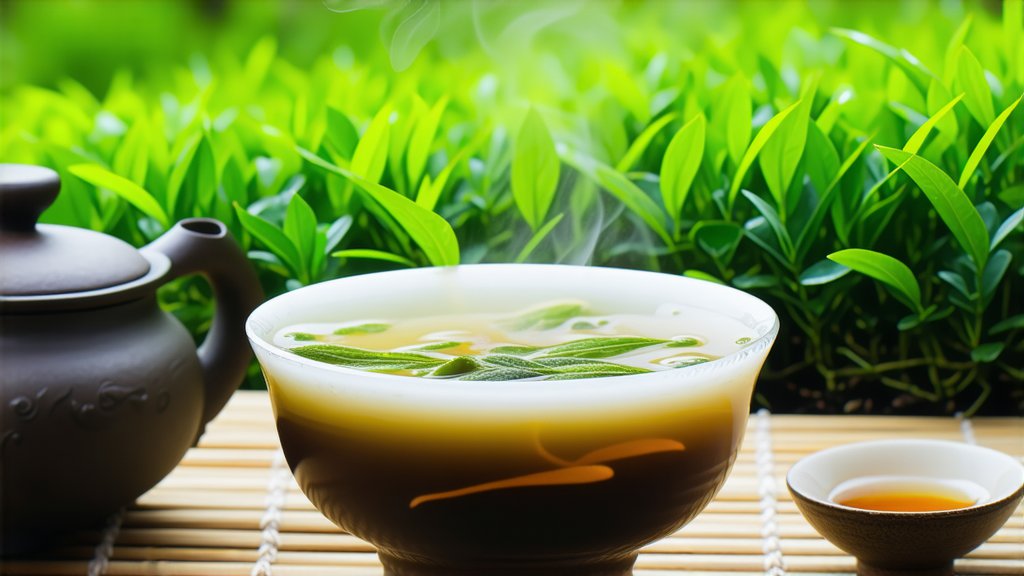
Longjing tea, also known as Dragon Well tea, is a revered variety within the vast spectrum of Chinese green teas. Its origins trace back to the Tang Dynasty (618-907 AD), but it gained prominence during the Qing Dynasty, particularly in the early 18th century when Emperor Kangxi was said to have discovered its unique charm. Named after the Dragon Well (Longjing) at Lion Peak in Hangzhou, Zhejiang Province, this tea embodies not only a rich historical legacy but also an unparalleled commitment to quality and craftsmanship.
History & Heritage
The tale of Longjing tea is intertwined with Chinese folklore and history. It is believed that a certain emperor, while on a tour of the West Lake region, was enchanted by the sight of tea leaves shaped like the dragon's claws dancing in the water. This led to the name "Dragon Well," symbolizing the tea's connection to imperial favor and its esteemed status among connoisseurs. Over centuries, Longjing has evolved into a symbol of Chinese tea culture, representing purity, elegance, and the harmony between man and nature.
Varieties & Characteristics
Longjing tea comes in several grades, primarily differentiated based on where they are harvested along the slopes of the West Lake region. The highest quality, often referred to as "Xihu Longjing" or "West Lake Dragon Well," is plucked from tea gardens surrounding the lake. These teas exhibit flat, spear-shaped leaves with a jade-green hue, covered in a fine downy fuzz. The aroma is delicate yet persistent, reminiscent of fresh spring grass or chestnuts, while the flavor profile boasts a balanced sweetness and slight vegetal undertones, devoid of bitterness.
Lower grades, such as those grown further away from the lake, may have broader leaves and less pronounced flavors, but still retain the characteristic shape and some aspects of the signature aroma. Regardless of grade, all authentic Longjing teas share a commitment to handcrafting traditions that have been passed down through generations.
Crafting the Perfect Cup
The art of making Longjing tea is a testament to the meticulous care taken in every step of the process. Harvesting typically occurs in early spring, with the first flush being the most prized for its tender leaves and high concentration of nutrients. Only the top two leaves and bud are selected, ensuring the finest quality.
Once picked, the leaves undergo a series of intricate steps:
- Withering: Freshly harvested leaves are spread out thinly to lose moisture and become more pliable for shaping.
- Fixation: This crucial step involves briefly heating the leaves in a wok or pan over high heat to halt enzyme activity, preserving their vibrant green color and fresh flavor. Skillful tossing ensures even heating without burning.
- Shaping: Artisans skillfully press and roll the heated leaves into their distinctive flat shape, mimicking the movement of a dragon's tail—a technique requiring years of practice to master.
- Drying: Finally, the shaped leaves are gently dried to remove excess moisture, enhancing their crisp texture and extending shelf life.
Appreciating Longjing Tea
To truly appreciate Longjing tea, one must engage in the traditional Chinese tea ceremony, which emphasizes mindfulness, respect, and the beauty of simplicity. Here’s a guide to savoring this exquisite brew:
- Preparation: Use a clear glass or porcelain teapot to showcase the tea's graceful dance as it steeps. Rinse the pot with hot water to warm it up.
- Water Temperature: Heat water to around 80°C (176°F). Too hot, and you risk scalding the delicate leaves; too cool, and they won't unfurl properly.
- Infusion: Place approximately 3-5 grams of loose leaves per 150ml of water. Let the tea steep for about 1-2 minutes for the initial infusion, adjusting time for subsequent steeps.
- Observation: Watch as the leaves slowly sink and unfurl, revealing their true form and releasing their fragrance. Notice the color transformation of the liquor from pale yellow-green to a deeper hue.
- Sip & Savor: Take small sips, allowing the tea to coat your palate fully. Pay attention to the subtle nuances in flavor, aroma with each inhalation and exhalation.
Longjing tea is not merely a beverage; it's an experience that connects drinkers to centuries-old traditions and the natural beauty of China's landscapes. As you indulge in a cup of this verdant elixir, allow yourself to be transported to the misty hills of West Lake, where every leaf tells a story of heritage, craftsmanship, and the timeless pursuit of perfection.